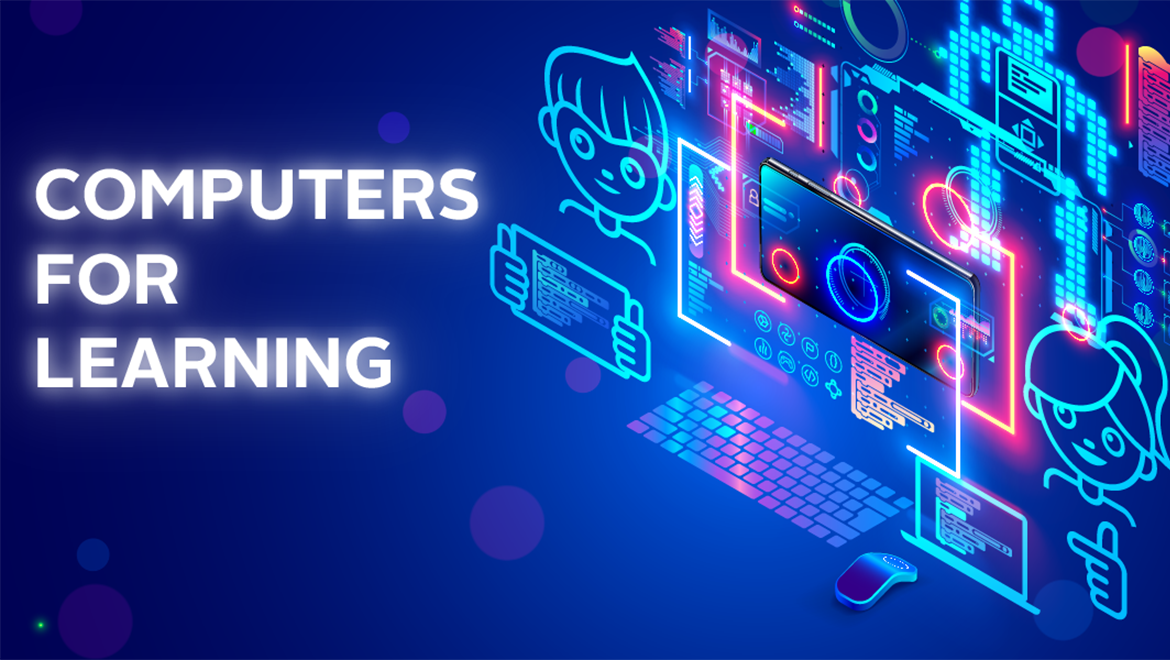
Recycled laptops sustain students and environment
JoAnne Coble Woodard backed her compact car into the loading dock at 1800 F Street in Washington, filled the trunk and back seat with working laptops, and drove nearly four hours back to Wilson, North Carolina, to share the free computers with students.
“We started securing equipment that we could not afford and the children could not afford,” said Woodard, co-founder of the Sallie B. Howard School of Arts and Science (SBH) that serves 1,200 students in kindergarten through grade 12.
“That was a treasure trove,” she said.
The school was chosen as a National Blue Ribbon 2021 “Exemplary Achievement Gap-Closing School,” one of two performance categories that the U.S. Department of Education places all winning schools based on overall student performance, subgroup student performance and graduation rates. “The designation was based on our students’ performance on state exams in pre-Covid years, putting SBH among the highest-performing schools in North Carolina in terms of closing achievement disparities between student groups and all students,” according to its website.
The Computers for Learning program was established in 1996, authorizing federal agencies to transfer excess computers to schools and nonprofit educational organizations. Recipients must be a school or educational nonprofit organization serving between kindergarten and grade 12 in any of the 50 U.S. states or the U.S. Virgin Islands, American Samoa, Guam, Puerto Rico or Northern Mariana Islands.
Since January 1, 2022, GSA has helped facilitate the transfer of more than 4,700 computers (with an acquisition value of more than $1.5 million) to students across the country.
“These computers are only a couple years old and have perfectly functioning operating systems,” said Nell Dunscomb, a GSA supply chain branch chief based in Seattle. “Repurposing government computers for educational use not only promotes digital literacy and bridges the digital divide, but also promotes sustainability by reducing electronic waste.”
The laptops have been stripped of federal applications and data, leaving an operating system on which schools can build with their selected software, he explained.
GSA staff have been proactive, reaching out to schools to see if their needs met the agency’s supply. Program registration is done online with proof of eligibility and uploaded required documents.
In October 2023, the team transferred 83 Dell laptops (valued around $88,000) to a small private kindergarten through high school in Fayetteville, North Carolina, after a fire destroyed some of the property, including numerous computers.
More recently, in February, GSA delivered 50 laptops and accessories to eager students at Our Lady of Calvary Grade School in Philadelphia, the largest pre-K to eighth grade school with 1,200 students. The items, with an original acquisition cost of over $65,000, were collected from various offices across GSA’s Mid-Atlantic Zone. The donation will offset the school’s budget that now can be devoted to the school’s hot lunch program.
And, in April, one year after a tornado seriously damaged a Mississippi high school, GSA transferred 45 laptops (valued around $48,195) to the small rural school between Greenville and Jackson. An EF4 tornado devastated the community, killing 26 people and injuring more than 150. Numerous structures, including the local high school, were hit hard. Since then, the high school students have been attending classes at the nearby middle school.
“Your donation not only provides tangible resources but also symbolizes your belief in our mission and commitment to empowering individuals through education and technology,” said Randy Ball, director of Federal Programs for South Delta School District. “We look forward to keeping you updated on the positive outcomes and successes resulting from your generous donation. Your contribution will make a lasting difference in the lives of many, and we are honored to have your support.”
Next for the Computer for Learning Program, GSA plans to donate 50 laptops to Ohkay Owingeh Community School in New Mexico. Kindergarteners through 8th graders attend the Tribally-controlled school.
To be eligible for the Computer for Learning program, public, private or parochial schools or nonprofits must have a National Center for Education Statistics Number. Educational nonprofits must be 501(c) tax exempt and be approved, accredited, or licensed. Those requirements avoid reselling for profit.
GSA also repurposes and recycles through its celebrated disposal and auction sites where people can bid for jewelry, boats, vehicles and other items.

 U.S. General Services Administration
U.S. General Services Administration
